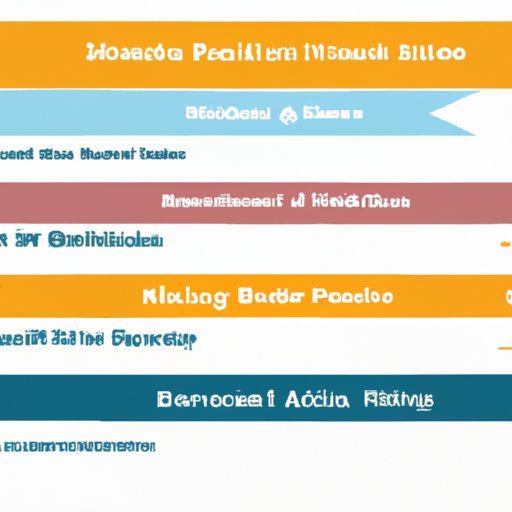Introduction
A Bachelor of Science in Nursing (BSN) is a four-year degree that is essential for nurses who want to pursue a career in nursing. Earning a BSN is an important step for those looking to advance their career and develop their skillset. But with so many different pathways to obtaining a BSN, it can be difficult to determine which route is best for you and how long it will take. This article will explore the various steps and timelines associated with getting your BSN, as well as the benefits of completing it quickly.

A Timeline of Steps to Obtaining Your BSN
Before you can begin your journey towards a BSN, there are a few prerequisites that must be met. Depending on where you plan on attending college, these requirements may vary, but typically include high school courses in math, science, and English, along with SAT/ACT scores. Once these requirements have been met, you can start the application process.
The application process will involve submitting transcripts, letters of recommendation, and other documents to the college or university. Once accepted, you can begin the academic coursework. This will involve taking classes such as anatomy and physiology, pharmacology, and nutrition. After completing this portion of the program, you will then move on to the clinical rotations. These rotations allow you to gain hands-on experience in various settings such as hospitals and clinics.
An Overview of the Length of Time Required to Earn a BSN
The length of time it takes to earn a BSN varies depending on the type of program you choose. Traditional programs typically take four years to complete, while accelerated programs can be completed in as little as 18 months. However, it is important to note that the length of time it takes to complete a program also depends on the individual. Some students may be able to complete their studies more quickly than others due to their prior knowledge and experience.
The Benefits of Earning a BSN in a Short Amount of Time
Earning a BSN in a shorter amount of time offers several benefits. For starters, it gives you access to more employment opportunities. Having a BSN can open up doors to higher paying jobs and better positions in the nursing field. Additionally, having a BSN can increase your salary potential, as employers often pay more for those with higher degrees.

How to Balance Work and School While Pursuing a BSN
For those who are already working full-time, balancing work and school can seem daunting. However, it is possible to do both if you have the right strategies. Time management is key when it comes to juggling both tasks. Creating an efficient study schedule and utilizing campus resources can help make things easier. Additionally, using online tools such as calendars and task list apps can help keep you organized and on track.

Exploring Different Pathways to a BSN
There are several pathways to earning a BSN. Traditional programs are the most common option, but there are also online and hybrid programs available. Online programs allow you to complete your studies from the comfort of your own home, while hybrid programs combine both online and in-person instruction. Each option has its own set of pros and cons, so it is important to research each one before making a decision.
What You Need to Know About Accelerated BSN Programs
Accelerated BSN programs are becoming increasingly popular due to their shorter timeline and the opportunity to get your degree in less time. However, there are some drawbacks to consider. For example, accelerated programs may require more hours of study per week than traditional programs. Additionally, they may not offer the same level of support as traditional programs, so it is important to weigh all of your options carefully.
Conclusion
Getting your BSN is an important step for those looking to advance their nursing careers. With the right strategy and preparation, it is possible to achieve your goals in a shorter amount of time. This article explored the different steps and timelines associated with obtaining a BSN, as well as the benefits of earning one quickly. Additionally, it discussed different pathways to a BSN, such as traditional, online, and hybrid programs, as well as what you need to know about accelerated BSN programs.
(Note: Is this article not meeting your expectations? Do you have knowledge or insights to share? Unlock new opportunities and expand your reach by joining our authors team. Click Registration to join us and share your expertise with our readers.)
